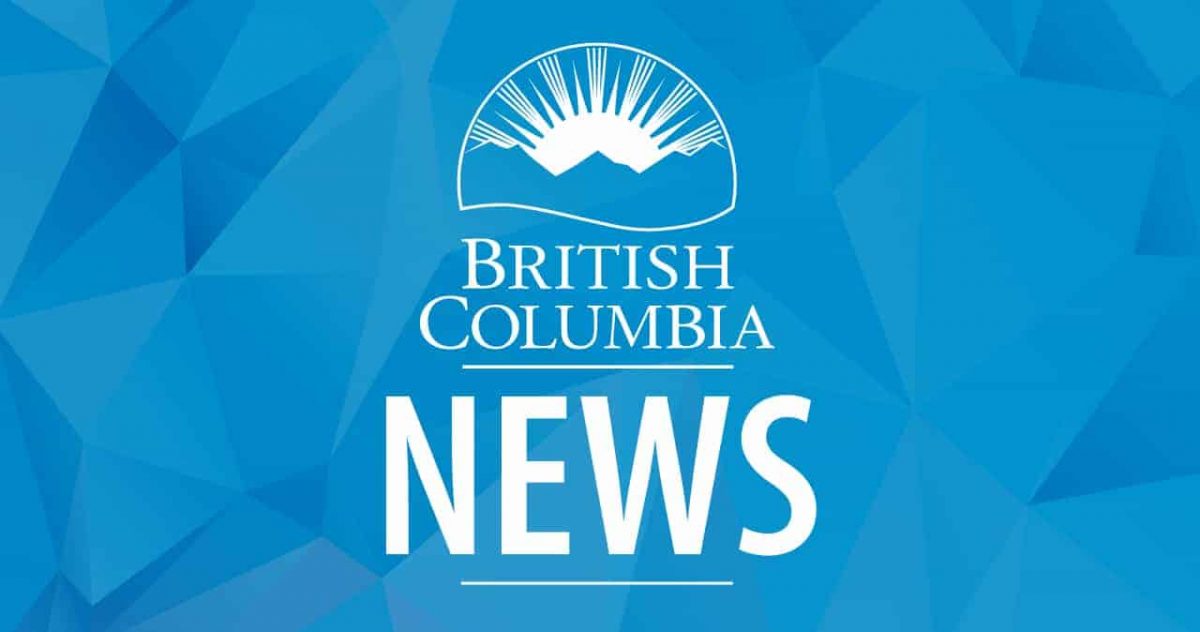
Kitsumkalum First Nation, the Government of Canada, and Government of British Columbia initial the draft Kitsumkalum Treaty and take important step to renew nation-to-nation relationships
Today, Chief Councillor Don Roberts of the Kitsumkalum First Nation, the Honourable Gary Anandasangaree, federal Minister of Crown-Indigenous Relations, and the Honourable Murray Rankin, British Columbia Minister of Indigenous Relations and Reconciliation, marked a significant milestone toward renewing their nation-to-nation relationships. The Chief Negotiators of all three parties, witnessed by these dignitaries, have initialled the draft Kitsumkalum Treaty, demonstrating progress towards Kitsumkalum implementing their right to self-determination and realizing their vision of a better future for their communities.
The initialling of this Kitsumkalum Treaty marks a pivotal step forward in advancing the Kitsumkalum Treaty negotiation process. Initialling marks an important milestone in the treaty journey, as it signals conclusion of substantive negotiations and readiness for the ratification process. Some changes may still be made prior to the community ratification process, as Crown consultations with neighbouring First Nations remain ongoing. Once finalized, the Kitsumkalum Treaty will undergo a ratification process through a Kitsumkalum membership vote, and through federal and provincial legislation. If successfully ratified by all parties, the Treaty will constitutionally recognize Kitsumkalum First Nation’s Treaty rights to governance, harvesting, land ownership, resource management, and other rights and benefits.
In recent years, there have been significant and foundational shifts in policy and approach that have reenergized the treaty negotiations process in B.C., including the finalization of the Recognition and Reconciliation of Rights Policy for Treaty Negotiations in 2019. These positive shifts reflect new approaches to negotiation in line with the United Nations Declaration on the Rights of Indigenous Peoples, Canada’s United Nations Declaration on the Rights of Indigenous Peoples Act and the B.C. Declaration on the Rights of Indigenous Peoples Act.
To get to this milestone, engagement activities have taken place throughout the many years of negotiations. Engaging and informing First Nation members, local governments, residents, business organizations, interest holders and other stakeholders, and the public is an important aspect of treaty and reconciliation negotiations and the ratification process.
The close of negotiations signifies the renewal of the nation-to-nation relationship between the Government of Canada, the Government of British Columbia, and Kitsumkalum First Nation. If ratified, the Treaty would facilitate the implementation of Kitsumkalum’s right to self-determination, socio-economic development, and realize their vision for a better future for their community members. The parties look forward to finalizing this important work and to seeing the positive change this historic agreement will bring to the members of Kitsumkalum First Nation.
Quotes:
Chief Councillor Don Roberts, Kitsumkalum First Nation –
“Today marks a historic moment for Kitsumkalum as we take a significant step towards self-determination and a brighter future for our community. This treaty will enable us to manage our lands, resources, and governance, in alignment with our cultural values and aspirations.”
The Honourable Murray Rankin, British Columbia Minister of Indigenous Relations and Reconciliation –
“When the agreement-in-principle was signed, Chief Councillor Roberts remarked that the Nation has chosen a path for change. The initialling of this treaty is a significant positive step forward on that path together. It is a testament to 30 years of hard work of the negotiating teams, and engagement from Kitsumkalum members, people throughout the region, other First Nations, local governments and industry partners. If ratified, the proposed treaty would be a path to self-governance, recognition of rights, vital resources, and new economic opportunity.”
The Honourable Gary Anandasangaree, federal Minister of Crown-Indigenous Relations –
“The Kitsumkalum Treaty will be a significant step for the Kitsumkalum people. This opens the doors to transformative pathways for self-determination, to advance their rights and governance. Today marks a positive shift in in nation-to-nation relationships based on respect, partnership, and recognition of rights. By working collaboratively through negotiations, we are actively advancing reconciliation.”
Quick Facts:
- Kitsumkalum and Kitselas are members of the Tsimshian First Nations Treaty Society, which represents multiple Tsimshian Nations whose combined territory spans the northwestern coast and the lower Skeena River, including the Prince Rupert and Terrace areas.
- Since the early 1990s, Kitsumkalum and Kitselas have been involved in treaty negotiations with the Government of Canada and the Province of British Columbia. These negotiations are now in the final stage of the BC Treaty Commission Treaty Process.
- For over 30 years, Kitselas First Nation and Kitsumkalum First Nation have been negotiating their two treaties together, which will result in two distinct, separate treaties. The unique ability to work together for 30 years demonstrates the close family ties and collaborative spirit between the two Nations.
- Once fully ratified, Kitselas and Kitsumkalum will join eight other Nations as the only Modern Treaty holders in British Columbia:
- Maa-nulth First Nations Final Agreement (Huu-ay-aht, Ka:’yu:’k’t’h’/Che:k’tles7et’h’, Toquaht, Uchucklesaht and Yuułuʔiłʔath First Nations)
- Nisga’a Final Agreement
- Tla’amin Final Agreement
- Tsawwassen First Nation Final Agreement
Learn More:
